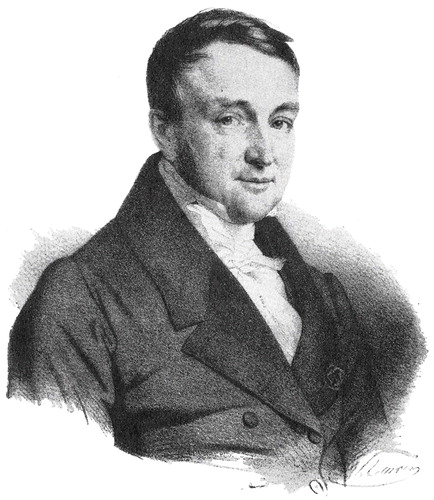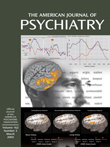Jacques Joseph Moreau (1804–1884)
Frustrated over not being able to locate a structural cause for insanity in the brain, in the mid-19th century, French psychiatrists began to focus on function (1).
The conceptual shift followed psychiatrist Jacques Joseph Moreau’s experiments with hashish (2). Since hashish induced some of the same hallucinations and disordered thoughts that he saw in his psychiatric patients, Moreau concluded that insanity stemmed from a dynamic disturbance in brain function that caused it to become unbalanced. Moreau conjectured that the etiology of this imbalance was an inherited condition that caused the brain to become more “irrigated” than other bodily organs (3). This imbalance weakened a person’s will and affected his or her predisposition to various conditions, such as madness, and amoral activities, such as criminality and drunkenness, that, if engaged in frequently, would exacerbate the underlying condition and induce hereditary pathologies of their own.
In reaffirming insanity’s organic basis, Moreau once again legitimized psychiatry’s role in identifying its etiology and treatment. By combining the concept of hereditary disposition and the inheritance of acquired characteristics, he also initiated debates about the eugenic consequences of alcoholism because of the assumption that it stemmed from an underlying weakness of the will. Writing in 1859 (4), Moreau warned that the hereditary brain pathology induced by alcoholism would turn successive generations of affected individuals into an easily manipulated mob of criminals and political anarchists.
Address correspondence and reprint requests to Dr. Abel, Departments of Obstetrics and Gynecology and Psychology, Wayne State University, 275 E. Hancock, Detroit, MI 48201; [email protected] (e-mail). Image published with permission of Bibliotheque de L’Academie Nationale de Medecine.

Jacques Joseph Moreau
1. Dowbiggin IR: Inheriting Madness: Professionalization and Psychiatric Knowledge in Nineteenth-Century France. Berkeley, Calif, University of California Press, 1991Google Scholar
2. Abel EL: Marihuana: The First Twelve Thousand Years. New York, Plenum, 1980Google Scholar
3. Moreau JJ: Hashish and Mental Illness (1845). New York, Raven Press, 1973Google Scholar
4. Moreau JJ: La Psychologie Morbide dans ses Rapport avec la Philosophie de l’Histoire ou l’Influence des Nevropathies sur le Dynamisme Intellectual. Paris, Masson, 1859Google Scholar



